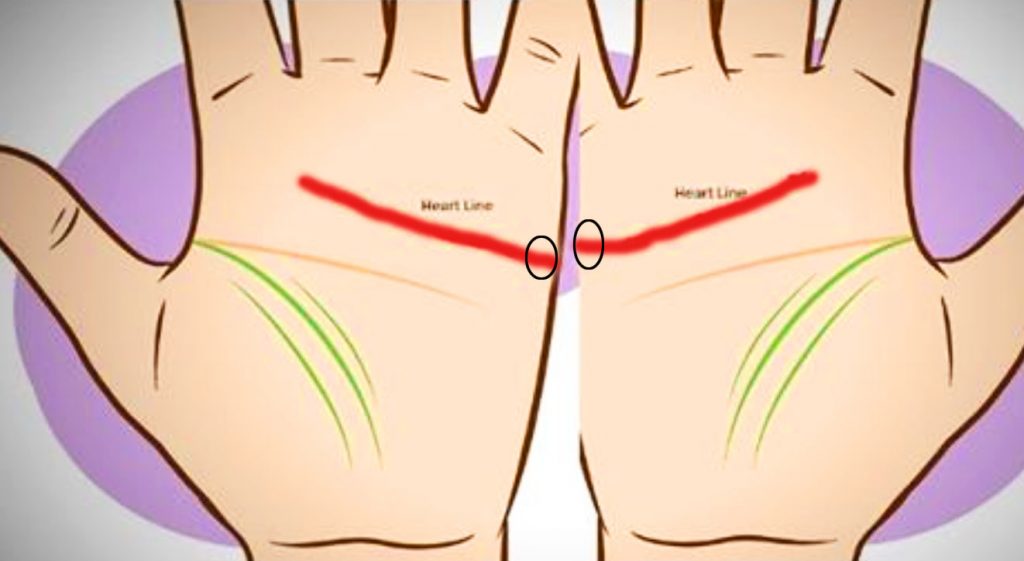THIS Is The Strange Reason Why If You Spot a Centipede In Your House You Shouldn’t Ever Step On It
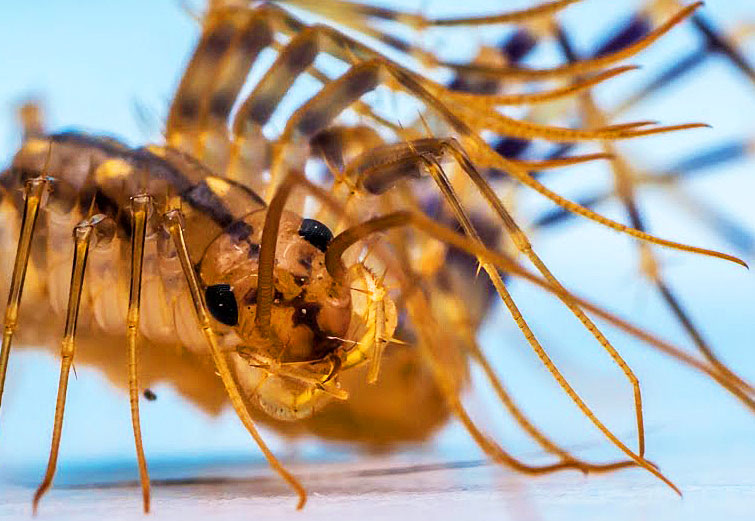
image via – youtube.com
Your home is supposed to be your sanctuary, a place where you can relax, unwind, and kick off your shoes. However, any sense of tranquility is easily shattered if you’ve ever spotted a house centipede crawling around your personal space. If you’re blissfully unaware of what a house centipede looks like, prepare to be enlightened.
The hideous looking creatures have what appear to be like a hundred legs, but according to Wikipedia there are actually only 15 pairs of legs, the key word being pairs! All of these long sets of legs stick out from their inch or longer bodies and to top it all off they have an extra long pair of antennae that makes them look way bigger than they actually are. They are downright ugly and unless you’re a fan of creepy crawlies, then you likely won’t enjoy these things running around your house.
Speaking of running, they are super fast so all of those spindly legs aren’t for nothing! Oftentimes people spot them because they suddenly dart out from whatever dark corner or crack they were hiding in. The sight is jarring and naturally your first instinct is to squash the sucker dead, but killing the bugs is precisely what you should NOT do! As odd as it sounds, once you know the reasons why they should be left alone, you’ll understand that it’s ultimately for the greater good.
First off, house centipedes are like tiny little pest controllers. They hunt out and kill other bugs that are invading your house and their appetites know no boundaries. They will eat spiders, moths, roaches, flies, silverfish, and even termites which can be a very damaging and expensive pest to have around your home. They themselves do not cause any structural damage, if anything the sight of them may take an emotional toll on you, but that’s it. Best of all, they’re a natural alternative to harsh chemical bug deterrents and they cost absolutely nothing.
Next, they are considered harmless to humans. They are more likely to run away from you rather than towards you, plus they’re mainly active at night time so you probably won’t ever even see them. While they do have poisonous venom, which they use to kill all those other bugs, their mouths and jaws are usually not big or strong enough to penetrate our skin.
However, on extremely rare occasions they have succeeded in biting a person and the effect is comparable to that of a bee sting. Minor redness, pain, and swelling may accompany it, but the chances of you getting munched on by one would be like winning the lottery or being killed by a shark; it’s just not going to happen.
Finally, if the thought of centipedes crawling through your home is too much for you to bear, simply take preventative measures to keep them out. Seal any cracks or places where they could possibly get in and keep all areas, especially basements and garages, damp-free and as dry as possible. You can leave sticky tape traps to catch them or call a professional pest controller in, but they really shouldn’t be a major issue unless you have an infestation or a severe phobia of bugs with a million legs!
Watch the video below for more information on centipedes:
Please SHARE This With Family and Friends
THIS Woman’s Husband For Over 26 Years Died From THIS Common Bug Bite!
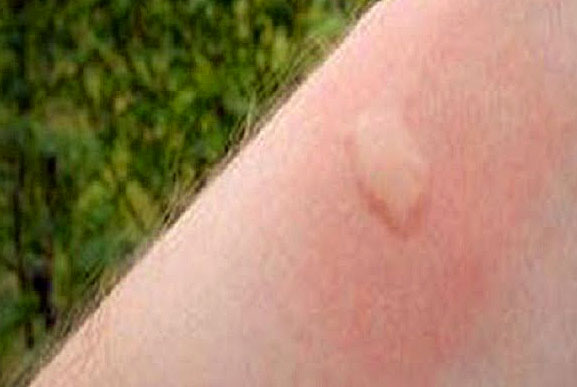
image via – youtube.com
When you find a tick on you, you can’t help but think of all the terrible possibilities. Maybe it has Lyme disease or is infecting you with some other nasty, horrible health condition. The thought eventually fades away with time, but it’s always lingering in the back of your mind. If they suffer a bite, some people will save the tick and have it analyzed in a lab or go straight to the doctor, but many just watch the bite area and pray it didn’t spread anything bad.
You can never know how a tick bite will play out, and despite them being on the rise, not much is known about the many complications and illnesses that the tiny insects carry. Even the most widely known disease that ticks spread, Lyme disease, is notoriously tricky to both diagnose and treat. The lesser known ones are even scarier and more sudden, like the one that took Crissy Naticchia’s husband Jeff’s life.
Crissy and Jeff had been married for 26 years and throughout the whole time she was with him she only remembers him getting sick twice. He was a healthy, active guy, and while he had recently become a little overweight, he’d been working hard to get back in shape. When he got sick the second time around, Chrissy thought he had the flu. He had a fever and was weak, but within the span of a few days his condition drastically worsened.
Jeff became too weak to stand and had such a high fever that his clothes were drenched in sweat. Fearing for his life, Crissy rushed him to the emergency room where doctors diagnosed him as having a kidney infection and given antibiotics. He returned home and his fever finally broke, but he still utterly exhausted. He knew something was wrong and wasn’t feeling any better. Crissy thought maybe he’d been misdiagnosed and brought him to the hospital again.
Doctors ordered more in depth tests for a number of possible diseases, but everything came back negative. They saw that Jeff’s liver and kidneys were shutting down and sent him to specialists who focused on liver malfunction. He was immediately placed on dialysis but two days later developed respiratory issues and had trouble breathing. He continued to deteriorate and ended up in the ICU where a ventilator helped him breathe. His prognosis was grim, but Crissy stayed strong and kept pushing for answers.
The hospital finally did have a diagnosis for Jeff, he was suffering from babesiosis. The tick-borne illness is caused by parasites that infect and attack red blood cells. Anyone can contract babesiosis but it’s more severe in the elderly, people who have weakened immune systems, and those who have had their spleen removed. Jeff had previously had his spleen removed and this was likely why he was suffering from such a severe reaction.
With news of the diagnosis, Chrissy was initially relieved, but that quickly turned to dread. She’d gone home to rest when she awoke to a call at 4:30 in the morning. The hospital called and told her to come quickly, her husband’s blood pressure was dropping fast, and his heart was giving out. Two hours later, Jeff passed away.
Crissy could not believe Jeff had died to suddenly and wants to use his story to raise awareness about tick-borne diseases and prevention. Tick related illnesses are on the rise and yet not many people are aware that those who’ve had a splenectomy (their spleen removed) or who have compromised immune systems, face a higher risk of serious illness or death. Healthy people are also at risk and if you take simple precautions to lessen the chance of getting bit by a tick it could save your life.
Watch the video below for the full story:
Please SHARE This With Family and Friends
Apparently This Is The Scary Reason Why You Don’t See Fireflies On Your Lawn Anymore

Many people have some really fond memories of the happy, carefree times they spent outside searching for lightning bugs. It’s basically a childhood tradition to run around at dusk, looking for the tell-tale green lights, trying to track them down catch them. However, something strange has been happening lately!
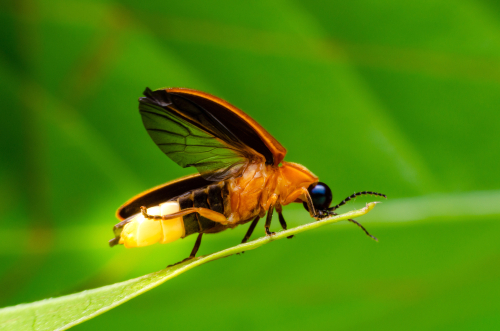
If you’ve noticed that there just aren’t as many fireflies as there used to be, you’re not alone. All across the country, and the world, the little glowing bugs are fast disappearing. With each passing year there seems to be less and less lighting up the night and it will be a sad day when fireflies are gone forever.

Researchers and scientists have been documenting the phenomenon and along with bees, butterflies, and many other insects whose numbers are also in decline, the primary cause is being attributed to mostly human activities. In particular, the insects are losing their natural habitat as humans move in and take over the land.

The constant development and population growth means that there are fewer places for fireflies to live, breed, and thrive. They prefer cool, damp areas in and around forests where there is an abundance of rotting wood and bodies of standing water.

Another big issue they face is related to the explosive increase in light pollution. Between street lights, car lights, flood lights around houses, and all of the countless other sources of bright artificial light that illuminate the night sky, there’s a lot for them to contend with.

Light pollution is terrible for fireflies because it messes with their ability to light up and signal one another, which is how they mate. If they aren’t glowing as much, they aren’t reproducing as much, and that’s a major part of why there are noticeably less fireflies with each passing summer.

Finally, the extensive overuse of pesticides is killing scores of innocent lightning bugs. Chemical pesticides are extremely harsh and can be toxic to all forms of life, including your own. They kill much more than what they are intended for. In fact, pesticides are why bees are disappearing in such alarming numbers and many of the most common and widely used varieties are lethal to them.
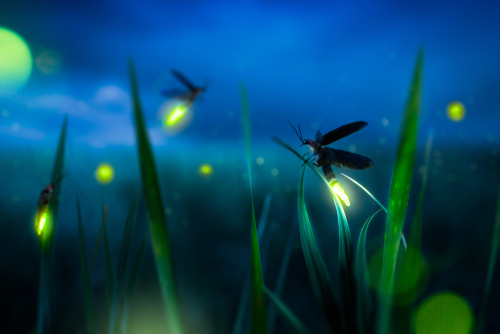
In addition, the runoff containing the toxic chemicals ends up polluting rivers, lakes, streams, ponds, and basically any body of water, even watersheds, aren’t immune from their ill effects. In the end, it’s best for everyone, especially mother nature, to just say no to using pesticides.
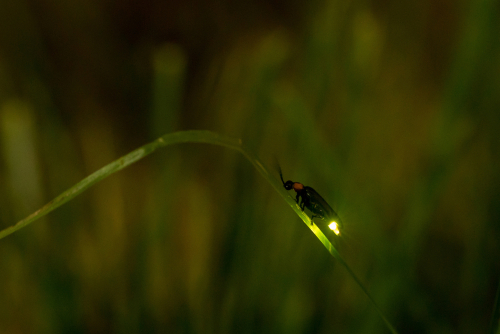
As bleak as the firefly situation seems, there are some things you can do to help the cool little bugs out and make a positive difference. The easiest and most obvious thing you can do is limit the amount of light pollution you’re contributing to the environment.

Use lights with motion detectors so they aren’t always on and turn off any that may be unnecessary at night. You’ll not only save energy and money, you’ll also see more lightning bugs in the long run.
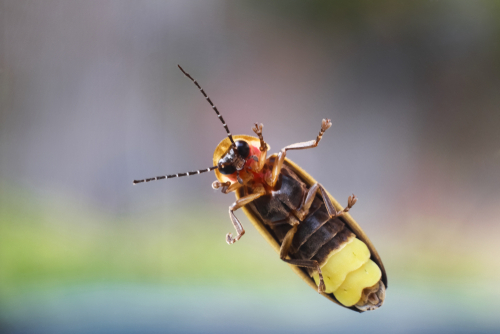
Next, give them a place to live. They don’t need much, just some natural vegetation like rotten logs and composting leaves is enough for them. If you can, rather than clean up everything on your property, leave part of it wild and untouched. Finally, stop using chemical pesticides! Opt for organic and other natural alternative solutions instead.

All that it takes is a little knowledge and awareness to help stem the drastic decline in lightning bug numbers. Please do what you can and be sure to pass this information on with friends and family so that future generations will be able to enjoy fireflies for years to come!
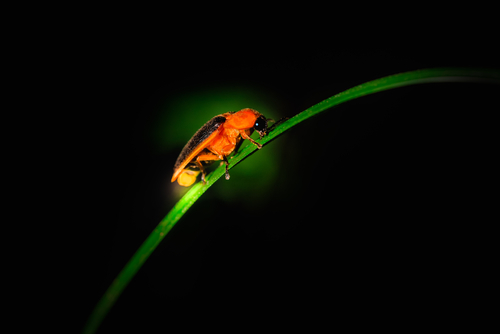
Please SHARE This Story With Family and Friends
He Died Days After THIS Strange Red Spot Appeared. When The Docs Figured Out Why They Freaked!
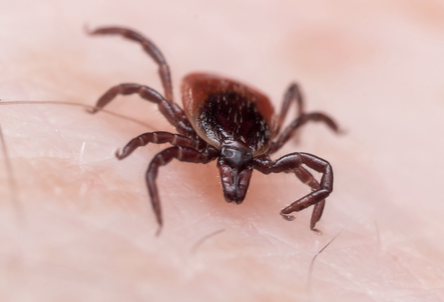
image via – shutterstock.com
A man in Bourbon, Kansas died a terrifying death 6 months ago, which completely stunned all his doctors, who had no explanation for what had caused his rapid demise and untimely death. It is just now, that the cause has been revealed.
There is a new virus that is being transmitted through ticks, that is just starting to hit the U.S.A. Because the disease is viral, there is not an antibiotic that can treat it (as is the case with all viruses such as lyme disease), and as such is posing a scary threat to the health and well being of people in this location.
According to the infectious disease experts studying this, nothing like this has ever been seen in the Western hemisphere. Its genome is similar to diseases seen in Eastern Europe, Africa and Asia!
Because the man who died lived in Bourbon County, Kansas they have named this rare illness the Bourbon virus which the infectious disease authorities believe is being carried by ticks. There is still tons of research that urgently needs to be done before researchers can even begin get a handle on how this strange virus appeared and why it just recently showed up for the very first time in the west!
It is being studied intensively to determine what in the genome caused the anorexia, severe muscle pain and an unreasonably high fever that was totally untreatable and ultimately led to this man’s death. Let us know your thoughts after watching the video below!
Have you heard about the Bourbon Virus?
Please SHARE With Your Family and Friends
THIS One Simple Trick Will Get Rid Of Those Annoying Fruit Flies and Gnats For Good!

A fruit fly infestation in your home can be more than a bother. These tiny pests, also known as gnats, can often become unbearable. It can require disposal of fruits and vegetables, replacing cleaning supplies, fixing suspect drains and plumbing and on and on.
After attempting all of these fixes you may find yourself still battling the infestation. This is due to the fact that the breeding of these gnats is rapid. If you have run out of patience with these annoying pests, there is a simple solution that I truly wish I knew about years ago!
All you need is a cup, some apple cider vinegar, plastic wrap and a device to poke very tiny holes like a toothpick. This DIY will show you what to do with these simple products to finally take care of the problem. Watch this simple video, and your problem will be solved. It is the perfect life hack with spring in full swing and summer right around the corner!
Please Share this with friends and family


